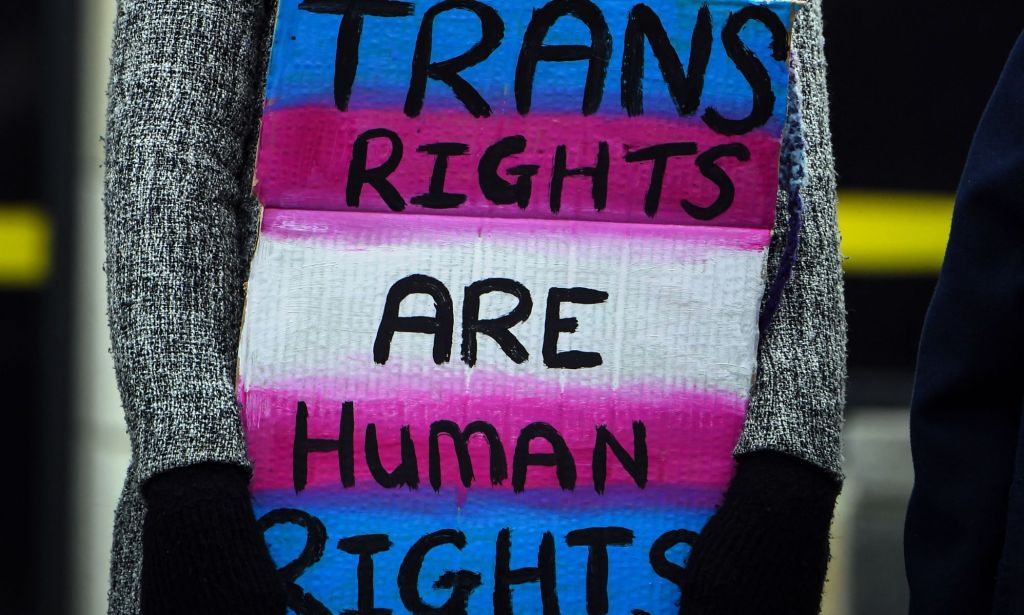Utah just became first state to ban lifesaving healthcare for trans kids in 2023

Sources from The Tavistock Clinic say it will only close its doors once all patients currently being seen are safely transferred to the new Phase 1 services. (YouTube/FOX 13 News Utah)
Utah has become the first state to ban gender-affirming care for trans youth in 2023 after governor Spencer Cox signed a chilling bill into law.
The state’s Republican-dominated legislature seemingly prioritised the legislation, SB 16, as it was quickly passed through both chambers in January. The House approved the measure on Thursday (26 January), and the Senate passed it just a day later.
The gender-affirming healthcare dropped on Cox’s desk, and he signed it into law on Saturday (28 January).
Utah’s measure would bar minors from receiving gender-affirming surgeries and place an indefinite moratorium on their ability to access puberty blockers and hormone therapy if they had not yet been diagnosed with gender dysphoria.
However, minors who were diagnosed with gender dysphoria before the bill’s effective date would still be able to receive such care if they meet certain requirements.
It would also require the Utah Department of Health and Human Services to conduct a “systematic review of the medical evidence regarding hormonal transgender treatments and provide recommendations” to the state legislature.
Cox said in a statement that the new law was brought on by a desire for “more and better research” to determine the “long-term consequences” of gender-affirming healthcare.
The move follows similar legislation enacted in other GOP-led states amid a larger wave of anti-trans bills, many of which target gender-affirming medical care for trans kids.
An estimated 58,200 trans youth were at risk of losing access to gender-affirming healthcare as a direct result of Republican-led attempts to ban such treatments, according to a 2022 report by the Williams Institute at the UCLA School of Law.
The ACLU of Utah vowed the fight for trans rights doesn’t end with Cox signing the vile bill into law. The civil rights group tweeted that trans youth “deserve to grow up without constant political attacks on their lives and health care”.
“This bill effectively bans access to life-saving medical care for transgender youth in Utah,” said Brittney Nystrom, executive director of the ACLU of Utah.
“It undermines the health and well-being of adolescents, limits the options of doctors, patients, and parents, and violates the constitutional rights of these families.”
In a letter to Cox, Nystrom warned the legislation could have “damaging and potentially catastrophic effects” on “people’s lives and medical care” as well as the “grave violations of people’s constitutional rights it will cause”.
Cathryn Oakley, state legislative director and senior counsel for the Human Rights Campaign, blasted the “discriminatory legislation” for banning healthcare that is “age-appropriate and supported by every major medical association”.
“Medical decisions are best left to medical experts and parents or guardians, not politicians without an ounce of medical training acting as if they know how to raise and support our children better than we do,” Oakley said.
Some LGBTQ+ advocates hoped Cox would be compelled to block the bill because he previously took a stance in support of trans youth facing another vile anti-trans bill.
In March 2022, he vetoed a trans sports ban bill. He explained that only four of the estimated 75,000 high school students participating in sports in the state are trans, and he said a trans sports ban would have a negative effect on the mental health of trans student-athletes.

Utah lawmakers swiftly overrode his veto, but a state judge in August issued a preliminary injunction blocking enforcement of the law.
Despite Cox’s remarks, studies overwhelmingly show that trans people who have access to gender-affirming treatment are significantly less likely to experience depression and anxiety and consider suicide than those who are barred from such treatments.
Further research found trans youth who had access to hormone therapy reported an increase in positive emotions, life satisfaction and self-confidence.
Additionally, major medical organisations – including the American Medical Association, the American Academy of Pediatrics and the American Psychological Association – have supported such care for minors.

